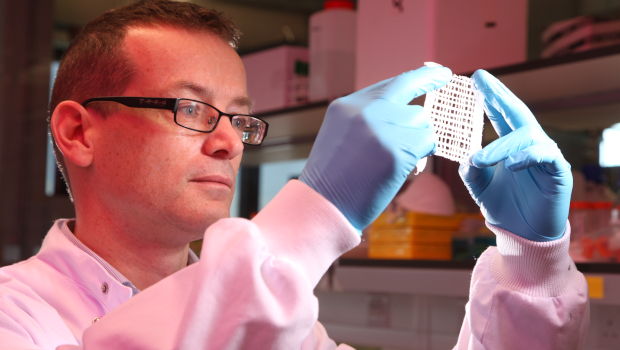
Focus on research: Prof Gerard Wall, Curam
Prof Gerard Wall is an investigator for Curam, the Science Foundation Ireland centre for medical device research.
In November, Prof Wall and his team of researchers from NUI Galway and the University of Wyoming received a grant of €199,720 from the Health Research Board to develop a handheld device for rapid detection of SARS-CoV-2, the virus that causes Covid-19.
In this interview he discusses his academic career and explains more about his current project.
Tell us about your academic journey to date.
I did a degree in Microbiology at NUI Galway, followed by a PhD in antibody engineering in Bill Harris’ group at the University of Aberdeen, Scotland. I then postdoc’d with Andreas Plückthun at the University of Zurich, Switzerland, again working on recombinant antibodies, before taking up a position as lecturer and group leader at the University of Limerick. I was there for 12 years before returning to my alma mater in Galway in 2008.
You’ve recently secured funding for a SARS-CoV-2 rapid detection device. How does it work?
Recombinant antibody fragments – small, ligand binding components of whole antibodies – that bind a SARS-CoV-2 protein are immobilised on nanoparticles and used to carry out immunodetection of the virus. The functionalised nanoparticles are incorporated into a handheld, surface-enhanced Raman spectroscopy instrument, which allows us to detect virus with a very high sensitivity and the result is available in about 15 minutes.
Where will we see this device in use?
The device is designed for point-of-care use in settings such as airports, workplaces, schools – locations where a rapid result can be critical in making decisions on immediate isolation and treatment. It is stand-alone, doesn’t require instrumentation in addition to the handheld unit itself for test administration or interpretation. We have also designed it to not require any sample preparation so that it can be administered by anyone.
What learnings do you think will be taken from the pandemic from a product development perspective?
I think getting the right group of people with the required expertise together from the earliest planning stage is critical. It’s very easy for researchers to work in isolation in our niche areas and not consider if our ‘solutions’ will be compatible with existing manufacturing processes, can be scaled up as required, meet the actual needs of the patient, etc. It’s clear from the speed at which diagnosis tests and vaccine development have progressed throughout this period that all partners and end users need to be involved in design and planning in order to realise products as efficiently as possible.








Subscribers 0
Fans 0
Followers 0
Followers